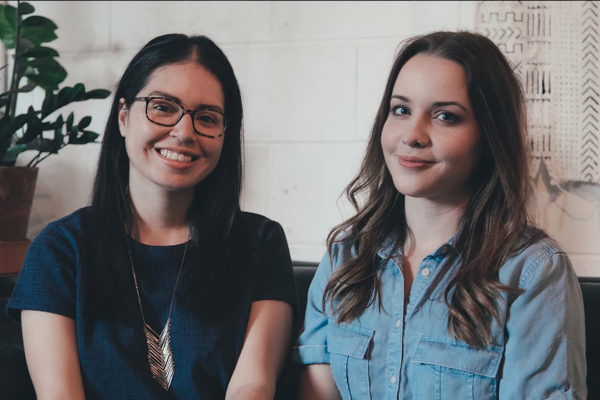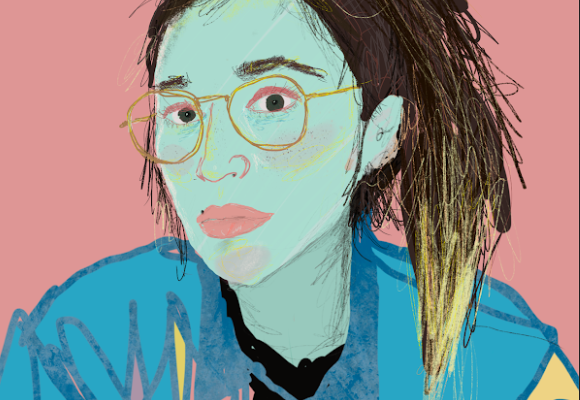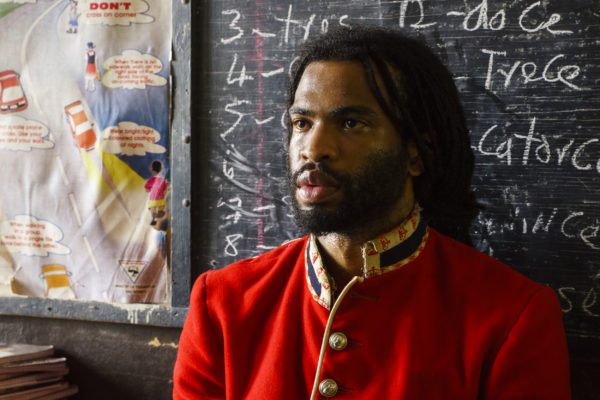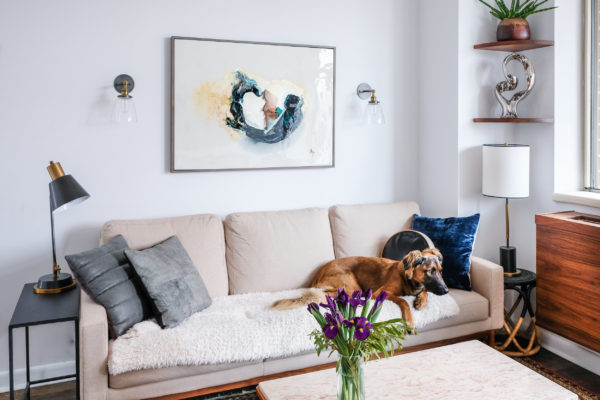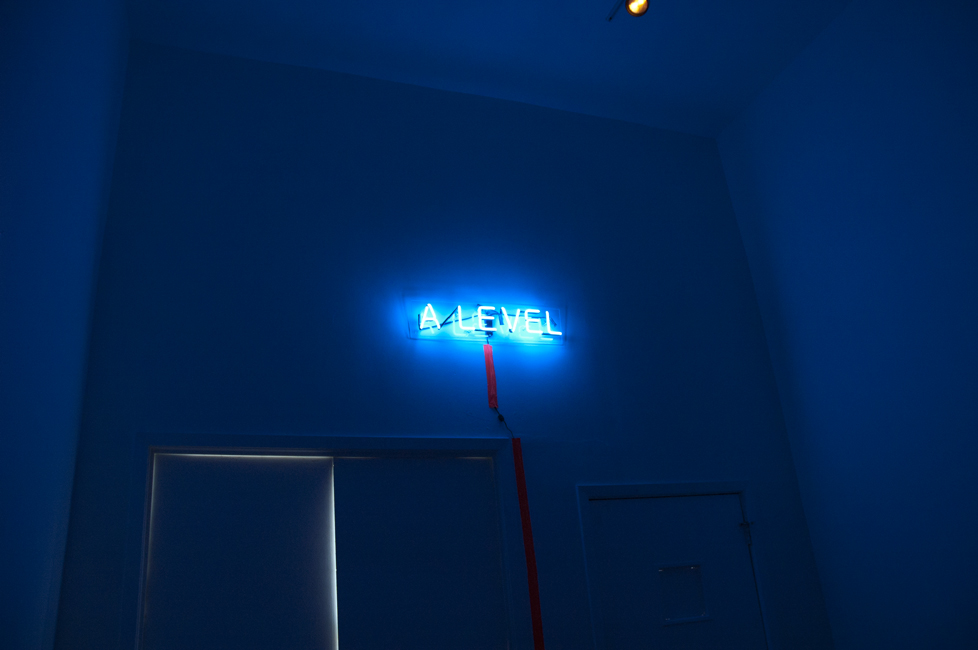Sonny Pimentel loves to hear a story — but she doesn’t want the CliffNotes. She wants to know if your heart slowed or sped up, if the clothes that you were wearing comforted or restricted you, and if the color of the light that spilled in through the window was pale yellow or golden.
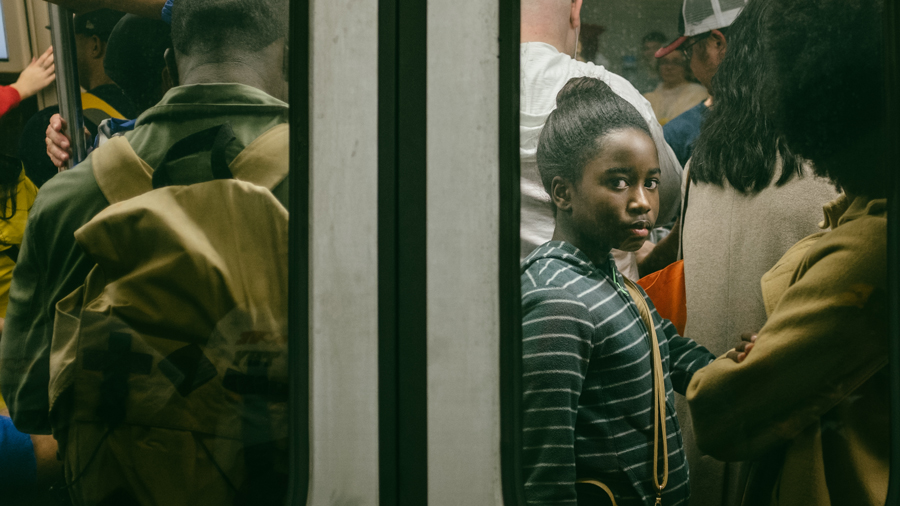
Details matter to Sonny because her career path as a visual storyteller is one she takes very seriously. She not only wants to tell the truth — she has an intrinsic need to. Sonny’s American life is something she never takes for granted. The geographical happenstance of taking her first breath in a hospital room in Mexico City fundamentally shaped her whole world. She realizes that she is fortunate to have an American address, but will never forget the place that she first called home.
No stranger to hardship, Sonny is blazing the trail as a woman in the big old boys’ club of film. She’s been asked if she has the capacity to lift a camera in interviews, something she’s certain has never been asked of a man. But she hasn’t let these unfair judgments slow her down. Her photographs have been shown both nationally and from Milan to Beijing.
Sonny has her goals set and wants to use her artistic talents in photography and film to tell real Latin American stories — not the romanticized, technicolored Mexico City in Frida, or the gruff gangster glorification in Días de Gracia. As a self-professed “light chaser,” the light that she is chasing is the one that burns inside of her subjects.
CommonCreativ sat down with Sonny to chat about her heritage, what you can master from Monet, and how her cinematography degree informs her work today.
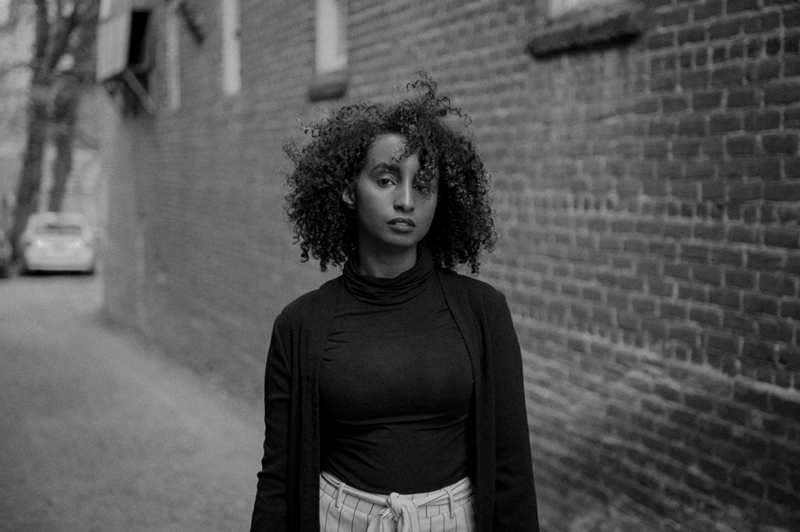
CommonCreativ: What sparked your interest in art?
Sonny Pimentel: Art came later, but my creativity was omnipresent. My father is a very accomplished musician in Mexico, so I always figured that I would follow in his footsteps and go into the music business as a singer. I attended a Catholic boarding school when I was 7 years old where there wasn’t as much access to the music I liked, so that never really came to fruition.
CC: How did boarding school shape your childhood?
SP: I was attending boarding school in Mexico while my mother was working several jobs at a time in America, so it made sense at the time, and I’m not bitter about it. Being raised by nuns makes you immensely independent, but without my parents around I didn’t take school as seriously as I should have. When I moved to the U.S.A. at 13, I still had that rebellious streak that led to me failing some classes when I went to high school. The punishment for failure was being forced to take art and, of course, it ended up being a considerable reward. In my first class, I discovered darkroom photography and was hooked. The discipline of it all spoke to me. Something in me clicked, and I’ve had my hands in developing chemicals ever since. I still shoot 35mm [film]. I won’t stop.
CC: Who inspires you?
SP: My mother. Cliche, and absolute. Her tenacity and work ethic is unparalleled. She forces me to think about my heritage. I am a proud Immigrant, and she made me that way.
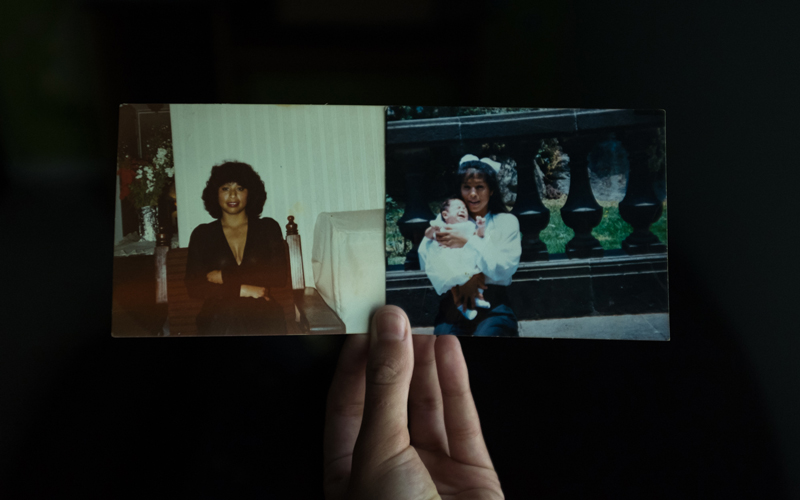
CC: What are your most significant personal achievements?
SP: I am the first person in my family to achieve a degree. That makes me swell with pride, especially as my degree is in cinematography. Only 5 percent of cinematographers are women, so I feel like a baby trailblazer. I feel privileged to be living the life that I am living, but it was not without hardships — my family has sacrificed a great deal. There was not a silver spoon placed in my mouth.
CC: Who is your favorite artist?
SP: Monet. His attention to detail makes my heart swell, and as a photographer, I can say that no one captures light as well as Monet. He studied it with such intensity. How can you study photography without studying Monet? The simple answer is that you can’t. Monet’s paintings may be soft, but they are profoundly technical. I also love Diane Arbus. Her photographs of the so-called “freaks” amaze me. She asks questions with her art: Who are these people? What are they saying to you? She makes her audience think and do some of the work, and I aspire to insight the same feelings with my work.
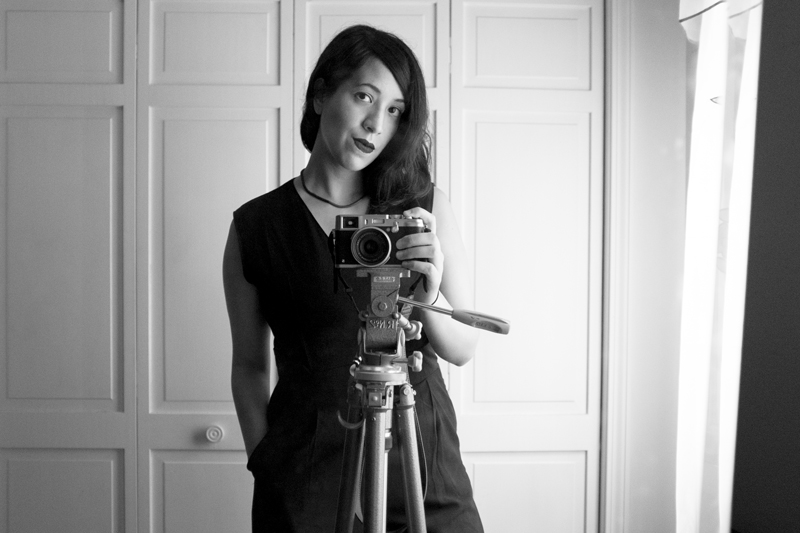
Photographer Sonny Pimentel
CC: What is your creative process?
SP: I am obsessed with storytelling, so it varies as the story is always changing. I honestly tell the person that I am photographing or filming to ignore me. I want to capture what is already happening, I don’t want to orchestrate it. Working with creative directors suits my photography work. I am drawn to collaboration and authenticity like a moth to a flame.
CC: What comes next?
SP: Eventually, I would love to become the director of photography for films. I want to focus on Latin American stories in particular because they are few and far between, and grossly romanticized and sensationalized.
CC: Who are the people who have helped you on your career path?
SP: My roommate Scott was a film major in college, and he has surrounded me with books and films that I wouldn’t have necessarily seen had I not chosen to let him guide me. I relish his seemingly limitless knowledge. I also have a mentor in my friend Bill who has taught me everything I know regarding technique and process. Scott and Bill are the wisest men I have ever known, and I am forever grateful for their presence in my life.
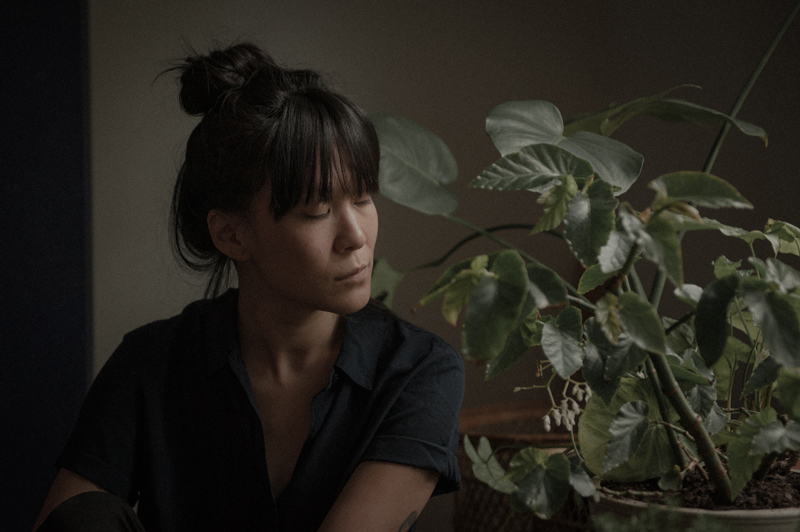
CC: Who are your dream collaborators?
SP: The people I want to connect with are those few souls that have an impactful vision that will move everyone forward. My best friend Gaoya Yang, who is an art curator in China, was the producer of my film Genderalia. She was the one who made me want to do more collaborations. Through the process of making that film, my world expanded. I became privy to ideas, lifestyles, and choices that I would have never have experienced in my own life. Recently, I got to work with Allie Bashuk on a project entitled “The Secret Life of Plants,” and she was a complete visionary. She made me want to reach out and find more creative people in Atlanta. I want to facilitate visionaries.
CC: What do you think of the Atlanta art scene?
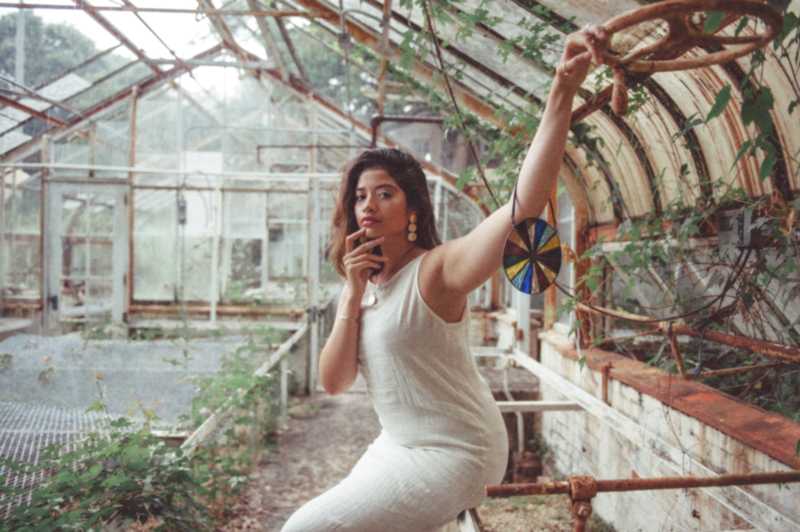 SP: I hate to say it, [because] I’ve been complaining about Atlanta for as long as I can remember, but I had to fly to California for a job interview recently. Sitting in a waiting room in Silicon Valley made me homesick for Atlanta. It was like a lightbulb went off. I had always complained about living in Georgia because it’s not progressive, and I hate being in a red state, but this is where I am needed at this moment. It was pretty eye-opening.
SP: I hate to say it, [because] I’ve been complaining about Atlanta for as long as I can remember, but I had to fly to California for a job interview recently. Sitting in a waiting room in Silicon Valley made me homesick for Atlanta. It was like a lightbulb went off. I had always complained about living in Georgia because it’s not progressive, and I hate being in a red state, but this is where I am needed at this moment. It was pretty eye-opening.
Since I got back, I have realized that Atlanta is not “Georgia” and that the creative people in Atlanta are so welcoming. I am open to staying in Georgia for the time being because I’ve been fighting for so long, and I’m not even close to being done yet. There is an opportunity to help here. My blue status in a red state is necessary, and I want to help the community that has given me so much support.
I want to dive into the art scene that I have been foolishly snubbing, and create amazing art. I want to highlight social injustices in a way that makes everyone take notice. I’m ready to work!
See more of Sonny’s work on her portfolio site and Instagram.

